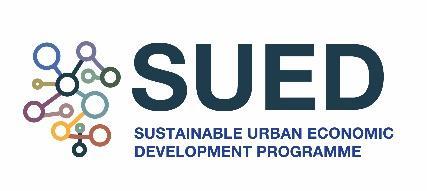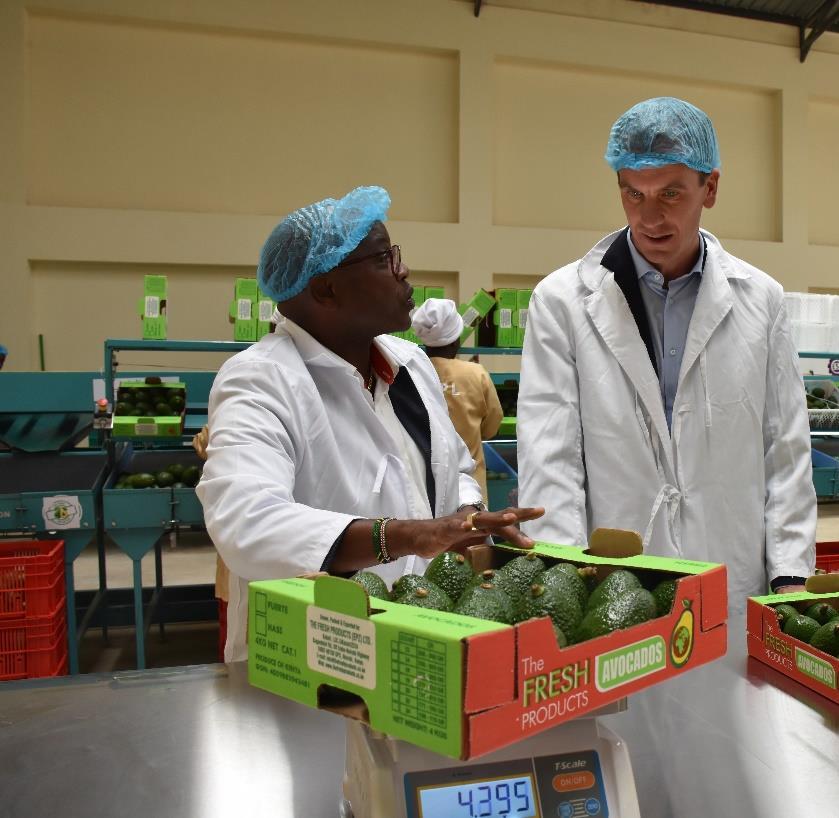






In the heart of Eldoret Municipality, a quiet revolution is underway. What began as a county-led diversification effort distributing over 200,000 avocado seedlings to farmers weary of maize volatility has blossomed into a full-fledged export ecosystem, anchored by a state-of-the-art avocado pack house operated by The Fresh Products Limited (TFP).
For decades, Uasin Gishu County’s agricultural identity was synonymous with maize and wheat. But erratic prices and climate shocks pushed farmers to rethink their future. With support from the County Government, smallholders began planting Hass and Fuerte avocados varieties prized in global markets for their creamy texture and long shelf life.

Among them was Mary Chebet, a former maize farmer from Kapsoya ward. “I planted 50 avocado trees in 2021. By 2025, I was earning ten times what I made from maize,” she says. “And I didn’t have to worry about middlemen anymore.”
Farmers who planted avocado trees in 2021 are projected to earn significantly more than they did from maize, with early adopters already reporting promising returns.
The turning point came with the establishment of the Eldoret avocado pack house—a £2.2 million investment co-financed by SUED’s seed fund and TFP. Strategically located near the NOREB region’s avocado belt, the facility aims to process over 6,000 tonnes annually, with cold storage, grading, waxing, and packaging lines that meet European export standards.
TFP’s Managing Director, Stephen Githiga, sees Eldoret as a natural fit. “The region has the climate, the land, and now the infrastructure. We’re not just exporting fruit we’re exporting trust, traceability, and Kenyan excellence.”
The pack house’s impact goes far beyond export figures. Over 4,000 farmers many of them women and youth now have access to stable markets, agronomic training, and climate-smart practices. Through contract farming, farmers receive certified seedlings, extension support, and guaranteed off-take prices.
“I used to sell to brokers who paid late and rejected half my fruit,” says 28-year-old Joseph Kiptoo, a member of a Local cooperative avocado Group. “Now I deliver directly to the pack house. I know the price, I get paid on time, and I’m learning how to manage pests sustainably.”
Young farmers participating from the cooperatives linked to TPF are expected to benefit from direct delivery to the pack house, with timely payments and training in sustainable pest management practices.
Avocado farming in Eldoret isn’t just profitable, it’s climate smart. The trees increase forest cover, improve soil health, and sequester carbon. Farmers are trained in mulching, integrated pest management, and water-efficient irrigation.
According to SUED’s climate screening, the project scored 54 out of 64 placing it in the “Moderate Climate Resilience” category, with strong potential to scale. This score indicates strong potential to withstand climate shocks and contribute to long-term environmental sustainability.
With exports reaching the Netherlands, Germany, and the UK, Eldoret’s avocados are now part of a global supply chain. And with TFP’s expansion into avocado oil processing in Kabati, even second-grade fruit finds value reducing waste and boosting farmer incomes.
This success story offers a replicable model for other intermediary cities: align county incentives with private investment, build climate-proof infrastructure, and centre farmer voices in the value chain. Counties seeking to replicate Eldoret’s success should prioritize enabling infrastructure, inclusive farmer engagement, and climate-smart investment incentives.
As Eldoret’s avocado journey shows, when local ambition meets strategic support, the results are not just fruitful, they’re transformational.